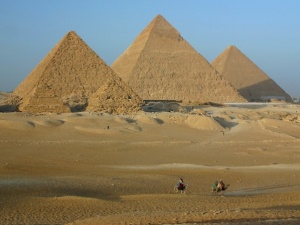United Nations praises Egypt’s tourism recovery plan

The United Nations World Tourism Organisation has praised Egypt’s efforts to restore its tourism economy and the resilience it has displayed in the face of adversity.
The Madrid-based tourism body also acknowledged Tunisia’s plans to rebuild its tourism economy.
The tourism economies of both destinations have suffered from the fall-out of popular uprisings that toppled the leaders of both countries.
The protests of recent weeks and media coverage of days of violent clashes have combined to scare off visitors. However the governments of popular source markets such as the UK and France have eased their travel warnings to both Egypt and Tunisia as the dust settles.
The UNWTO said it “welcomes efforts by the national authorities of Egypt and Tunisia to restore confidence among tourists and by foreign governments to update travel advisories accordingly.”
“Tourism is a central component of both countries’ economies and, as tourists begin to return, can play an important role in overall economic recovery,” it added in a statement.
The head of the UNWTO, Taleb Rifai, said he was “pleased to see that travel advisories have been kept accurate, confined to the affected areas and regularly updated.”
Last Sunday, Egypt reopened its historic sites, including the great pyramids of Giza and the antiquities museum in Cairo.
Both Egypt and Tunisia are mostly calm for now but tourism experts say the biggest challenge is restoring confidence.
Until the uprising Egypt had been one of the few tourism stars of the global downturn.
Its mix of winter sun beaches, ancient ruins and value for offer had proved irresistible to markets across Europe, as well as North America and Asia.
In 2009, revenues from tourism came in at $11.6bn according to Egyptian Tourism Ministry, and although final figures for 2010 have yet to be released, the number of travellers to Egypt rose by 21 percent in the first half of last year.
Cairo International Airport is the second-largest airport in Africa after Johannesburg, handling roughly 16 million passengers a year. The majority, 15 million a year, are tourists, according to the Egyptian Tourist Authority.
Tunisia received seven million international visitors in 2009, the last year for which figures are available, who generated 3.0 billion dollars in tourism receipts.

